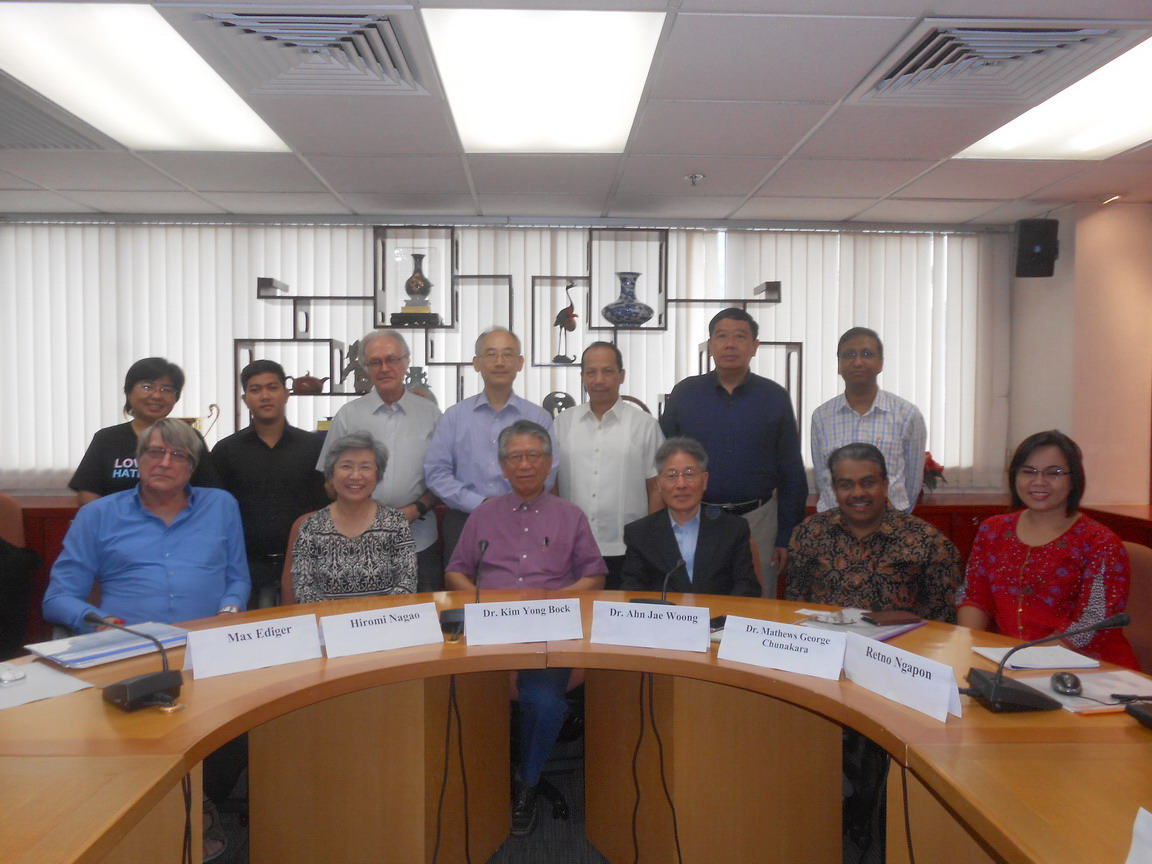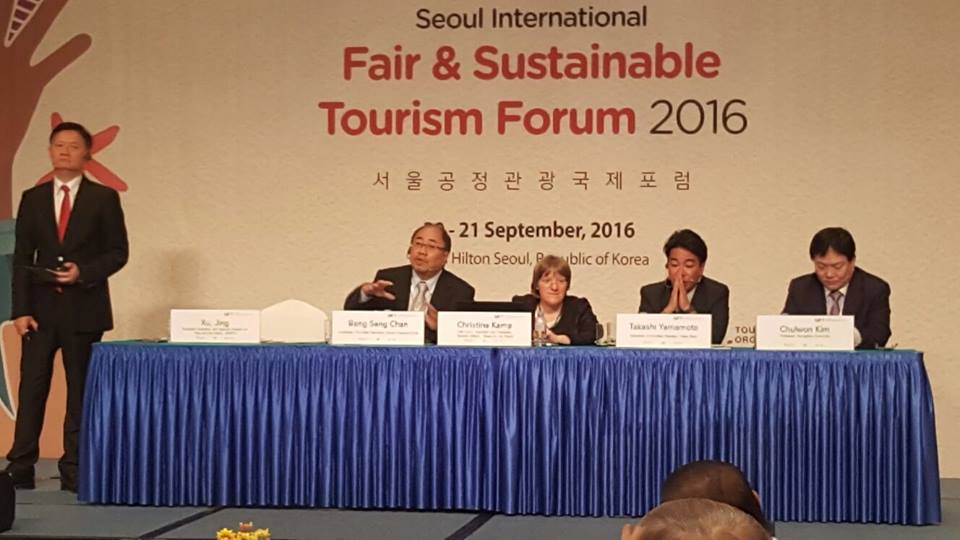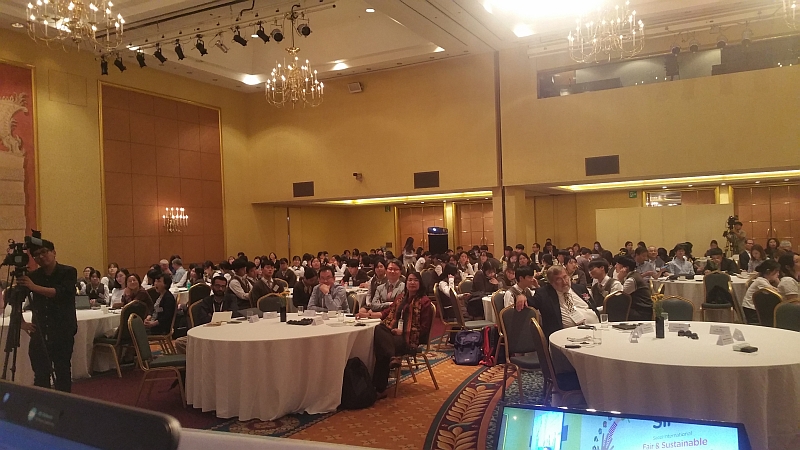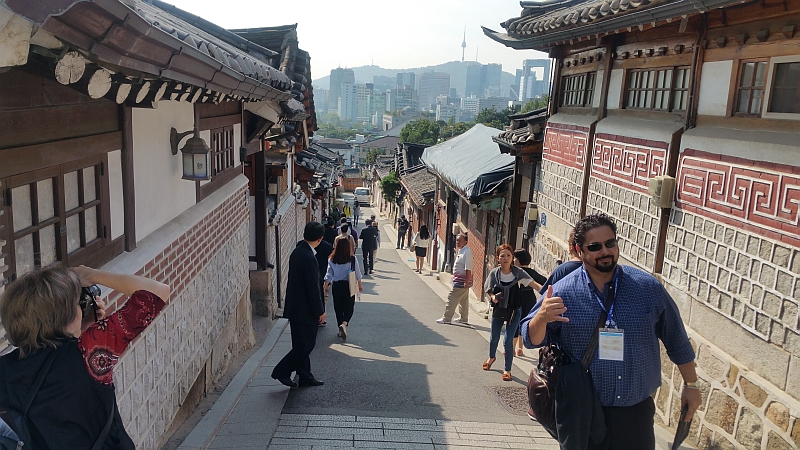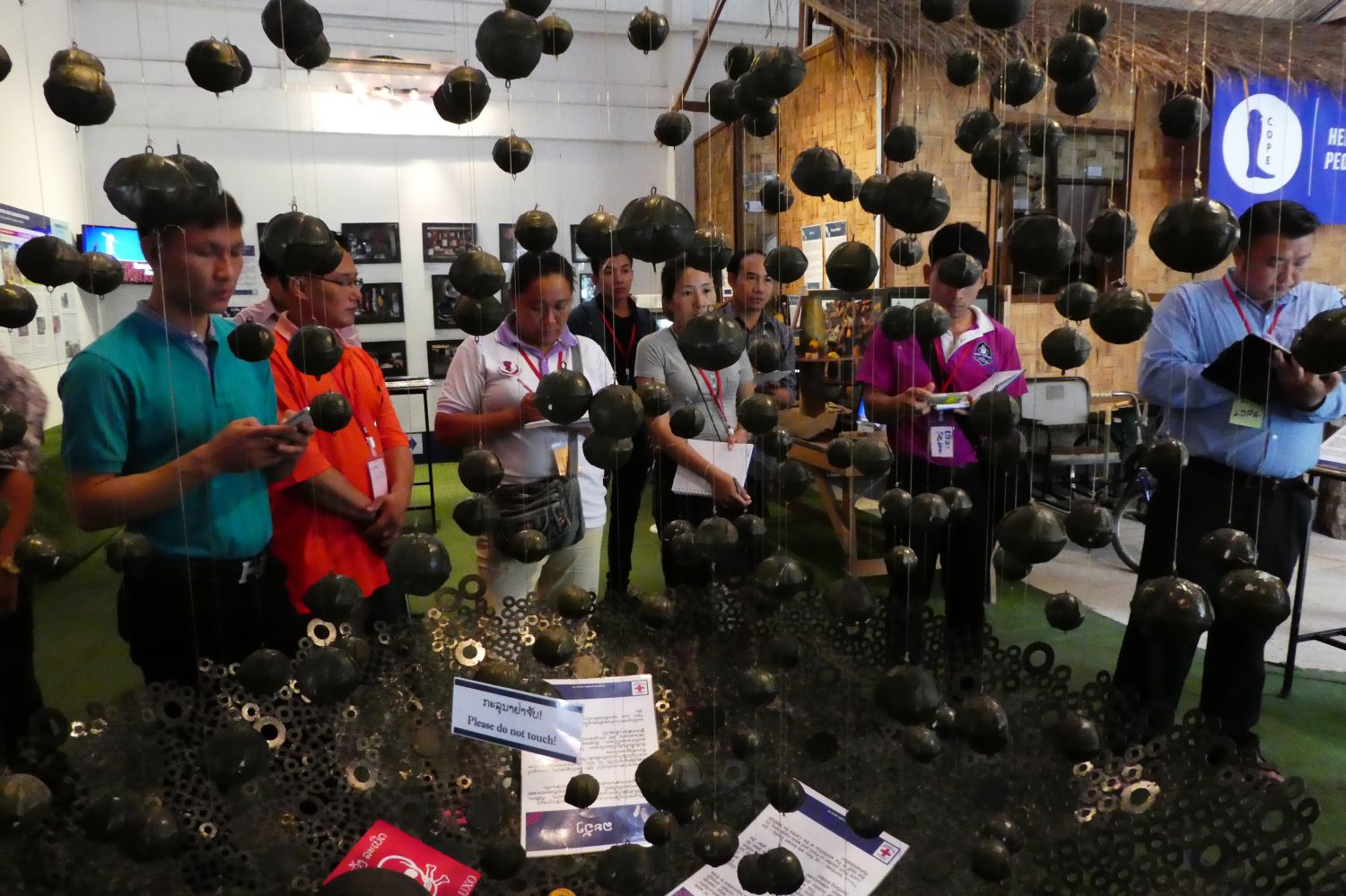↑Monthly eNewsletter of the Asia and Pacific Alliance of YMCAs
| This email contains graphics, so if you don't see them, view it in your browser. | |||||||||||||||||||||||||||||||
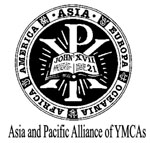  |
|||||||||||||||||||||||||||||||
~ Chan Beng Seng, GATN Coordinator GATN Networking on
|
|||||||||||||||||||||||||||||||
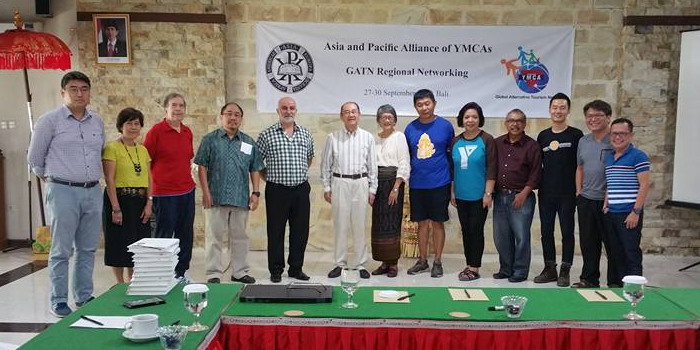 |
|
| ↑ Expanding our network with friends working on responsible and sustainable tourism - Fair Tourism, Peace and Solidarity Tourism, Ecotourism, Village Tourism, Peace Coffee and Social Solidarity Economy | |
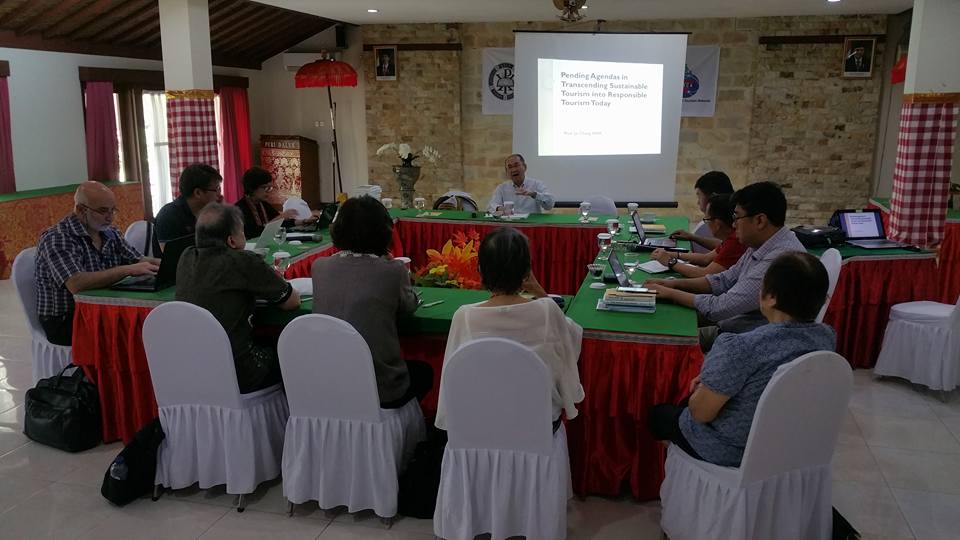 |
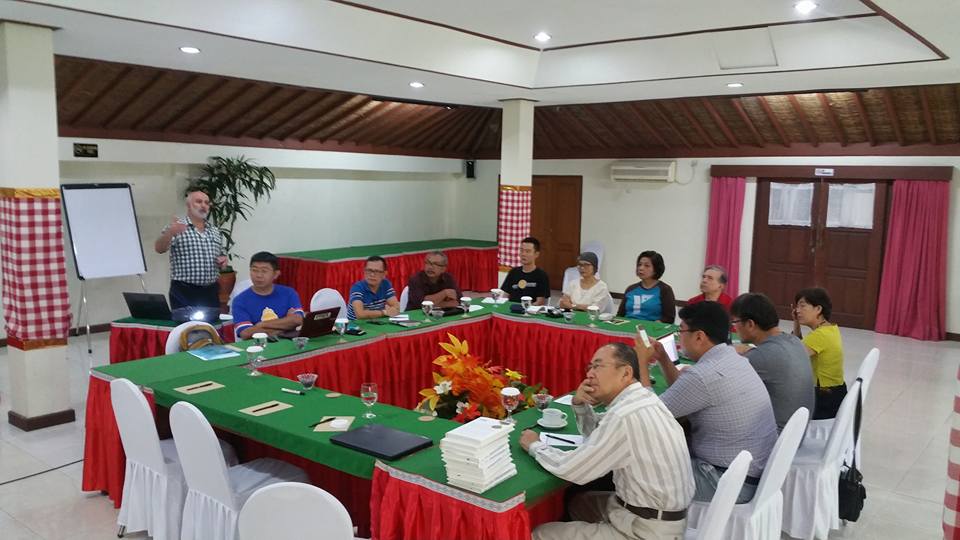 |
| ↑ Dr. Park Jai Chang giving the keynote address on Responsible and Sustainable Tourism | ↑ Nidal Abuzuluf sharing about peace and solidarity tourism in Palestine through the Olive Tree Campaign |
~ Chan Beng Seng, GATN Coordinator
Mission trip to Luang Prabang, Laos
The possibility of formally establishing the YMCA in Luang Prabang was the primary purpose why I was tasked to visit the place. Prior to this trip, there were already initial assessment, meetings/discussions and orientation about the YMCA with a group of people done in the past by the APAY staff with the support of Chiang Mai YMCA staff as well as the Y’s Men’s Club. A core group was already created to start building-up and stimulating awareness about the YMCA in the community. They also came up with a “Trash Project” which aims to help contribute to solving garbage/ waste disposal in Luang Prabang.
I arrived in Luang Prabang on September 14 and stayed there until the 20th. I had meetings with the key people of the group as well as their other members to determine and ascertain whether they are now prepared and capable of forming a YMCA. My concern, however, is that, in all those meetings, there were only a few people involved. The group shared that they have tapped and recruited other people to join them, but because of other interests and preoccupation they could not commit themselves to the task. Ms. Phetsamon Manola, the leader of the core group expressed nonetheless, that even with their limited number at present, they could already start a YMCA to make the people/the community aware that there is such an organization. Thus, in one of our meetings, it was decided that an Ad Hoc Committee will be created to get the organization underway. They elected their officers and a temporary staff was also appointed. We discussed further the necessary requirements needed in establishing the YMCA which they will need to work on, as well as membership development and program of activities. Rev. Kingphet, an active church leader who assured his support to the committee emphasized to them the importance of their commitment to achieving their goals and become successful in their task. Similarly, the committee was challenged to keep on sustaining and maintaining each other’s enthusiasm and interest and to give their full support to the undertaking.
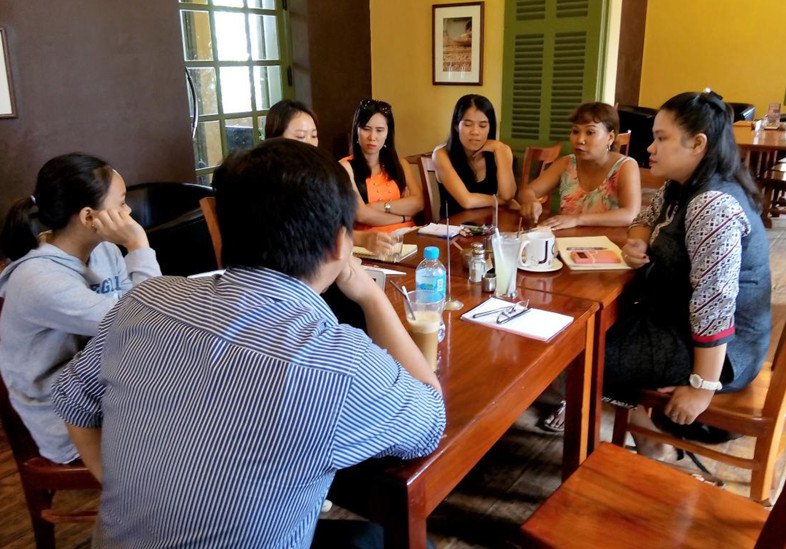 |
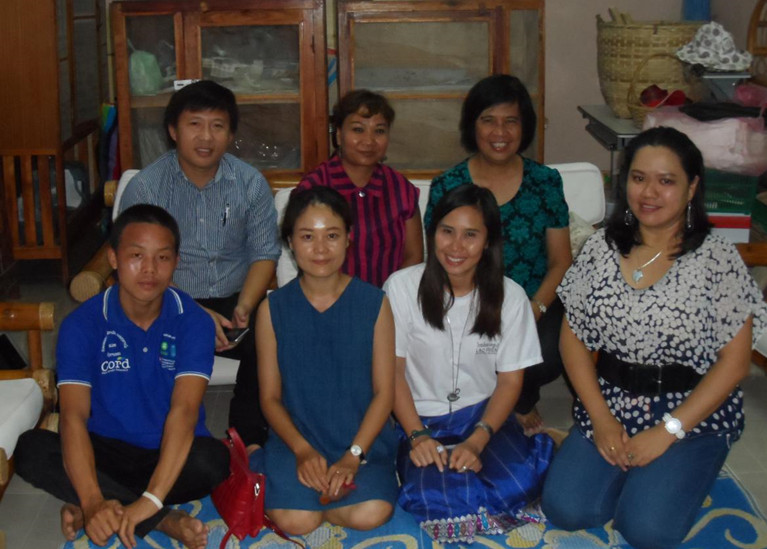 |
| ↑ Planning session of the Ad-Hoc Committee | ↑Rev. Kingphet (backrow, 1st, l-r), T.P. Juntereal (backrow, 3rd, l-r) with the Members of the Ad-Hoc Committee |
We scheduled a day for planning on how they will promote and initiate some programs and activities to make the YMCA known to the community. This is apart from continuing the “Trash Project”. There were several suggestions from the body but I encouraged them to start some simple initiatives first which is more practical and doable. The three remaining months of this year, October-December 2016, will be their time frame to see how they will progress in their work. On October 1, the Committee will have its meeting to tackle some important business like scheduling regular meetings, preparing some simple organizational guidelines, finalizing the programs/ activities to be initiated and who will be responsible for some tasks and other pertinent matters. Certainly, this will be a challenging process and tedious task. Much has to be done especially at this stage. Hopefully, as the Ad-Hoc Committee moves ahead, with their desire to make an impact in their community and contribute to making a difference, they will exert their best effort to address the challenge and pave the way for the emergence and development of a YMCA in Luang Prabang.
- Thelma P. Juntereal, MS Coordinator
ICF National Forum in Laos holds
Human Rights Workshop
The national forum of Interfaith Cooperation Forum (ICF) in Laos organized a one-week human rights workshop from Sept. 12 to 16 in the Laotian capital of Vientiane. For most of the 17 participants from the Lao Disabled People’s Association (LDPA), the Road Crash Prevention (RCP) team and Mennonite Central Committee (MCC), this program was the first human rights workshop they had attended.
Thus, most of the curriculum of the workshop, which was conducted by ICF staff member Bruce Van Voorhis and a School of Peace (SOP) alumnus from Cambodia, Hor Hen, sought to lay a foundation of what constitutes human rights by discussing the core U.N. human rights treaties on civil and political rights and economic, social and cultural rights as well as the U.N. conventions on the rights of women and of children. Because more than half of the participants were disabled, a major thrust of this workshop was presenting the U.N. human rights convention to define and uphold the rights of people with disabilities.
In addition to introducing these U.N. human rights covenants and conventions, the participants discussed religious freedom and the obstacles to human rights that people face in Laos and elsewhere in the region. Sessions of the workshop were also devoted to documenting human rights violations, advocacy and community organizing as a tool for people to identify their human rights problems and to respond to them.
The program included a one-day field visit to the Cooperative Orthotic and Prosthetic Enterprise, or COPE, that provides free rehabilitation services to people disabled by the U.S. bombing campaign that dropped an estimated two million tons of ordinance on Laos during the Vietnam War and that operates a museum about the effects of this war on the Laotian people. People even today are still affected by the “bombies” dispersed by cluster bombs during the war as up to 30 percent of the “bombies” failed to detonate, causing as many as 300 casualties per year. Children often think the unexploded “bombies” are toys, or farmers are injured while working in their fields.
During their field trip, the participants also visited a social enterprise operated by Asian Development with the Disabled Persons (ADDP), a Japanese non-profit organization, and LDPA to learn about their programs.
|
|
| ↑ During a field visit to the Cooperative Orthotic and Prosthetic Enterprise (COPE), the participants of the ICF human rights workshop learn about the hundreds of people in Laos who are still killed or disabled each year by unexploded "bombies" dispersed by cluster bombs by the United States during the Vietnam War. |
~ Bruce Van Voorhis, ICF Coordinator
APAY Green YMCA Awards 2016
The Asia and Pacific Alliance of YMCAs is proud to announce the APAY Green YMCA Awards 2016. The APAY Green Team is continuously working towards promoting environmental programs in the YMCAs in our region. With a view to recognize and reward the YMCAs who are engaged in green activities, the APAY Green Team had launched this award program in the year 2013 and since then it has become an annual event of APAY.
This year this award shall be presented to a maximum of three local YMCAs from the region of Asia and Pacific. National YMCA movements operating with only one unit of YMCA shall also be eligible to participate in this award program. The awards shall be adjudged, considering the YMCAs involvement in the past year in promoting environmental programs.
The deadline for submission of entries is on 31st December 2016. The awards shall be declared and presented during the Executive Committee Meetings of APAY held during 7-10 March 2017.
In the past years the YMCA of Geelong, Australia, Chinese YMCA of Hong Kong and YMCA of Chiangmai, Thailand were the recipients of this award.
We urge the YMCAs who are proactively involved in environmental programs participate in this environmental award program. Details of this program will be available with the affiliated national movements and also in the website of APAY.
~ Duncan Chowdhury, Executive Secretary
New Interim CEO of YMCA Australia
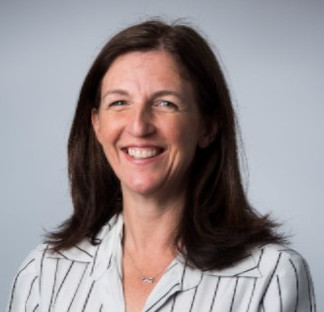 Melinda Crole has assigned as an Interim Chief Executive Officer of the YMCA Australia since 3rd May, 2016. Melinda has been the Executive Manager, Licensing & Development for YMCA Australia in recent history. She has worked at the national level for nearly 10 years and previous to that was the CEO of a local YMCA for 4 years which specialised in the delivery of community and children’s programs.
Melinda Crole has assigned as an Interim Chief Executive Officer of the YMCA Australia since 3rd May, 2016. Melinda has been the Executive Manager, Licensing & Development for YMCA Australia in recent history. She has worked at the national level for nearly 10 years and previous to that was the CEO of a local YMCA for 4 years which specialised in the delivery of community and children’s programs.
Melinda’s roles with YMCA Australia have included the development and management of the Licensing and Compliance system. Management of the national insurance and risk schemes for the YMCA is also within her portfolio. Melinda has also held key roles nationally for the YMCA in the area of child protection practice development.
These roles are supported by tertiary qualifications in science, business management and social science. Melinda is a graduating member of the Australian Institute of Company Directors and holds a position on the Federal Coalition of Organisations committed to the Safety and Wellbeing of Australia’s Children and AUSTSWIM.




